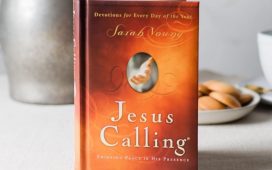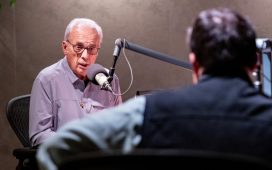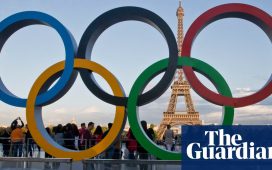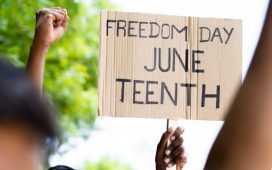A majority of people in Scotland say they do not follow any religion – the first time secular attitudes have overtaken religious identity.
Data from the latest Scottish census, carried out in 2022, shows 51% of the population reported they belonged to no religion – a sharp increase on the 36.7% in 2011.
The Church of Scotland, the once-dominant Presbyterian church, which is now holding its annual general assembly in Edinburgh, was the most heavily affected by the surge in secularism.
The census found the number of people who identified with the Church of Scotland had slumped by more than a third over the decade, falling from 32.4% of the population in 2011 to 20.4%, or 1.1 million people, in 2022.
The number of Catholics in Scotland also fell, though less dramatically, from 15.9% to 13.3%, or 723,000 people.
The census found that Polish immigrants were Scotland’s largest minority ethnic group, at 1.7% of the population. In many parts of Scotland, Polish Catholics have helped bolster church attendance.
Overall, Scotland is now a more ethnically diverse country. Nearly 13% of the population said they were from a minority ethnic background, up from 8.2% in 2011 and 4.5% in 2001. The census found 1.3% were of Pakistani descent or origin, 1% Irish, 1% Indian and 1% African.
The figures substantiate mounting evidence of Scotland’s increased secularism, such as church attendance and marriage data. The Church of Scotland, in particular, is selling off churches and merging parishes as it tries to adapt. In 2022 only 60,000 people worshipped in its churches.
Overall, only 38.8% of Scotland’s population said they were Christian, down from 54% in 2011. England and Wales have also recorded declines in religious identification, though at a slower rate, with 46.2% of people saying they were Christian.
Fraser Sutherland, the chief executive of the Humanist Society Scotland, said the data bolstered the argument that churches should no longer be allowed to sit on council education committees, and that state schools should no longer promote religious observance.
“When the current census survey was sent round in 2022, we encouraged respondents to be honest about their beliefs if they were non-religious,” he said. “These results bear out the fact that more people feel confident and open about expressing an atheist, secular or agnostic worldview than ever before.”
This release of census data, which covered religious identity, languages and ethnicity, also found:
-
More than 60% of people aged 49 and younger said they had no religion.
-
1.1% of people said they were of mixed ethnicity, up from 0.4% in 2011.
-
The number of people who said they were Muslim increased by 43,100, and the proportion was 2.2%.
-
Of the 2.9% of people who said they were “other white”, three-quarters described themselves as European.
This census also found an increase in the number of people who said they could read, write and speak some Gaelic, up from 32,000 in 2011 to 43,800 in 2022 – a finding that offsets other studies that report a steep slump in those who speak Gaelic as a first language.
The number of people who said they spoke Scots to some degree also grew, from 37.7% to 46.2%, in a sign that the language’s increased exposure and validation recently has led more people to identify as Scots speakers.
It also confirmed that Scotland’s population grew because of inward migration. Over the last decade, the number of people born in Scotland fell by 90,400, a fall offset by 49,200 people who moved to Scotland from other parts of the UK and the 185,600 born abroad.
Jon Wroth-Smith, the director of census statistics at National Records of Scotland, said: “Without migration, Scotland’s population would have decreased and we would have fewer people in younger age groups.”
The Scottish Catholic Media Office did not respond to requests for comment.
The Rev David Cameron, convener of the assembly trustees of the Church of Scotland, said the data was “sobering” and reflected longer-term trends. But he said the church’s relevancy was not simply measured in numbers.
“Our reforms of recent years have sought to address what the church is today and how we can serve people in new ways, in different places and times,” he said.
“[From] caring for the elderly, running debt-support initiatives, and substance use and dependency recovery services, to supporting asylum seekers, refugees and those displaced by war, the church excels in welcoming and caring for the stranger, which is what Jesus calls on Christians to do.”






